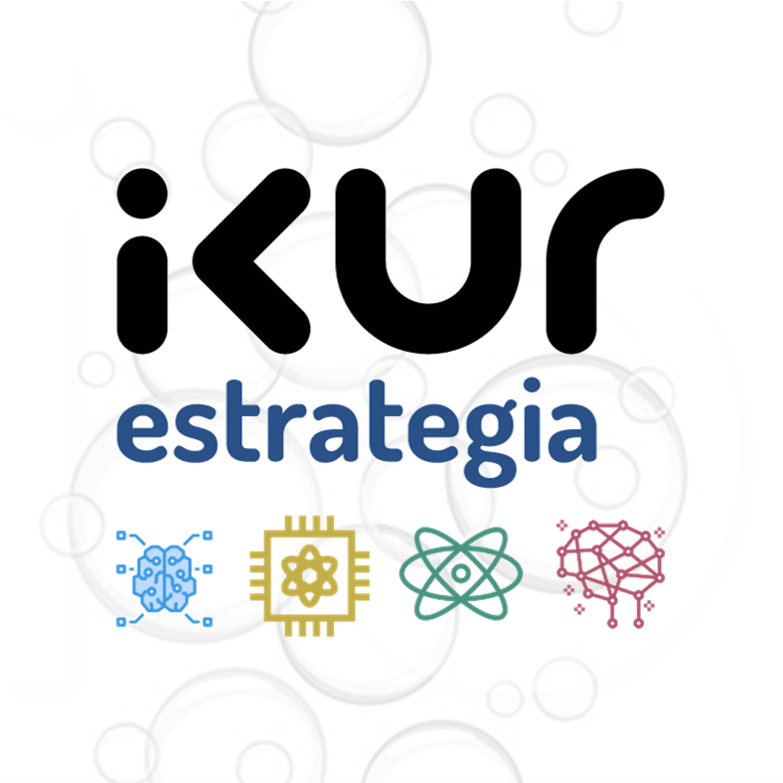
The Minister of Education Jokin Bildarratz, together with the Deputy Minister of Universities and Research Adolfo Morais, presented the Ikur 2030 Strategy launched by the Department of Education in the field of excellence research. Ikur 2030 was created with the aim of strengthening the scientific output of the Basque Country and achieving an international position in specific niches. It is strongly committed to four strategic areas of research for the coming years, in which the Department of Education will invest 100 million euros: Neurosciences; Quantum Technologies; Neutrionics; Supercomputing and Artificial Intelligence.
The presentation of the Ikur 2030 Strategy was also attended by representatives of the 9 BERC research centers (Centers for Basic Research and Excellence) dependent on the Department of Education, which will play an important driving role within the Ikur Strategy.
“Take the leap forward”
During the presentation, the Minister Bildarratz highlighted the high levels of development and the remarkable capacities that the Basque Country has obtained in the field of research, thanks to the work and collaboration of the entire Basque University Ecosystem (universities, BERC centers, Ikerbasque, Euskampus). “We are a benchmark in many fields, and we have managed to attract funding from outside of the Basque Country. In a sentence: we have become stronger, and we are international benchmarks. But we want to go a little further ”, he pointed out.
“Now we want to bet with greater intensity in some specific niches. We are able to make an important leap in certain areas. In short, we want to help our society, our productive and business network, through the work that our BERCs do every day, through basic research. We seek to leverage a structural change in the Basque Country with scientific, technological, business and social impact based on the promotion of emblematic long-term research initiatives. Our horizon looks to 2030. We are going to concentrate resources and efforts in a sustained way over time”.
4 scopes
The Ikur 2030 Strategy will make a firm commitment to four emblematic areas or niches, from now until 2030. It is a decision aligned with the main science initiatives and lines of research at an international level. They are a global commitment, due to their potential to respond to global challenges, and in which the Basque Country has unique capabilities.
The four strategic areas of Ikur, and some of its sectors or areas of application are:
- Neurobiosciences: with application sectors such as healthy aging or personalized medicine.
- Quantum Technologies: applicable, among others, in aerospace technology or telecommunications.
- Neutrionics (encompasses neutron and neutrino physics): with very diverse fields such as the Biomedical Industry, energy storage or the environment.
- Supercomputing and Artificial Intelligence: fields such as intelligent industry, or the field of energy.
Investment and impact
The bet requires significant investments, be it in infrastructures, in attracting research staff or for participation in international projects. For this reason, the Department of Education will allocate, in the next ten years, an additional 100 million euros to the Department's budgets. But the total investment mobilized during the 2021-2030 period may reach 280 million euros, through the connection with other projects and the adhesion of other agents, such as private companies, other administrations or international agents.
The impact estimated thanks to the Ikur Strategy is equally considerable, with the horizon in 2030:
- Hiring of 400 new researchers
- More than 4,000 indexed publications
- More than 30 patents in operation
- Creation of more than 20 new companies
- Turnover of more than 350 million euros
- Creation of about 3,200 jobs
Role of the BERC centers
The 9 BERC (Basque Excellence Research Center) centers dependent on the Department of Education will play a decisive driving role in the Ikur Strategy. The strategy links each BERC –depending on the field of science in which it carries out its research- to one of the 4 areas identified in Ikur. But this is a starter photo that, as the strategy unfolds, may vary, involving BERCs in new areas where they are not now identified, as new synergies emerge.
The BERCs carry out basic research, which on a Technological Maturity Level (TRL) scale is at the base. Based on this research work carried out by the BERC centers, the objective is that the incidence of their work increases on that scale, through the various scientific agents, until our business fabric benefits from the research developed by the BERCs ( applied research, experimental development or innovation).
For its part, the Basque Foundation for Science Ikerbasque will also carry out an important task within the Ikur Strategy: it will be in charge of attracting scientists of the highest level so that they become part of the strategy, as well as managing the funds that will be derived to the different BERCs. Likewise, Euskampus will collaborate with the Department of Education and Ikerbasque in the strategic planning and in the monitoring and evaluation of Ikur.
.png)
